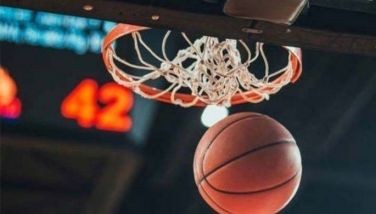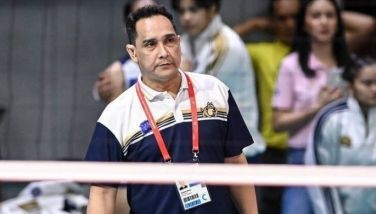Lawn bowls, sure gold
ANGELES, Pampanga – The first Greg McDougall Memorial Cup lawn bowls tournament fired off, with almost the entire Philippine team in attendance. In March, the Nationals came from a hugely successful campaign in Shenzhen, where they won two golds, two silvers and six bronzes at the China Open Lawn Bowls Championship. In August, Angeles native Rosita Bradborn won a gold in the third Asia-Pacific Merdeka Indoor Bowls Championship. It was a fitting homecoming which also remembered the man who brought lawn bowls to this country.
Lawn bowls and other variations like boccie and petanque had been around Europe in various forms since at least the 13th century and possibly earlier. In 1848, a uniform set of rules was put down by W.W. Mitchell at a meeting of over 200 players in Glasgow. The objective is to roll slightly asymmetrical (and unevenly weighted) balls as close as possible to a white ball called the jack. But how did a gentle, European sport like lawn bowls come to the Philippines?
We owe it all to the man who invented the electric toothbrush.
Australian Greg McDougall and partner Philipp McMillan own the intellectual property rights to the useful implement, further improving on attempts to engineer one that dated as far back as 1939.
McDougall moved to Hong Kong independently wealthy. Bored, he tried living in Cebu, where he found no one to share his passion with lawn bowls with. Eventually, he found his way to Angeles in Pampanga, and found a mixed community of expats and Filipinos who were warm and welcoming, and who learned the sport quickly.
“It was Greg’s dream to really propagate the sports,” recalls Philippine Lawn Bowl Association president Rey Pineda, an old friend of McDougall’s. “He loved the sport so much, that he spent much of his fortune building the greens here at Angeles Sports and Country Club (ASCC).”
Unfortunately for McDougall, he was a great inventor but a terrible businessman. His fortune was gradually siphoned off by so-called friends, who sank some of the money into the ASCC. A few years ago, near broke, McDougall learned that he was dying of cancer. He then sought out the help of real friends to preserve his dream. He had already seen the beginnings of success, when many of his friends and some locals were already enamored of bowls, and even ventured into international competition.
To underscore how accessible the sport is to anyone, and illustrate how easily Filipinos can be champions in it, let’s take the case of Ron Lising, who was involved in a watershed moment for the sport.
Lising, a tricycle driver by profession, was regularly shuttling American players to and from ASCC. On one occasion, the team was a player short, and they asked Lising to try the game out. He proved naturally adept at it, and impressed his hosts.
Fast forward now to 2005, the gold medal match in the Southeast Asian Games, hosted by ASCC. The Philippines is down, and needs a well-placed bowl to win its only gold medal of the competition. What many didn’t know was that the very future of the sports hinged on the outcome of that match.
“I felt that it was gold or nothing,” Pineda recalls. “If we did not win a gold, I didn’t think we would be able to really build the sport up. So when we were down and knew we had only one ball left, we decided to cheer and channel all our energy to Ron. He made a nearly impossible throw, with his ball gently kissing the jack closer to one of his other balls. It was worth three points, and the Philippines won the gold.”
Today, the sport has multiplied to a healthy level, with about 40 or so players capable of making it to the national team. But it is still a small fraction of what other countries are doing. Malaysia, for example, has 300 male and 300 female bowlers in training, and hundreds more waiting in the wings. For the Philippines, exposure is the key.
“What the Philippines has accomplished is tremendous,” explained John Knight, who was head of delegation to China. “Each athlete brought home a medal. Not too many sports can say that. If we get the proper support, we will really be world-class. Filipino bowlers are just naturally gifted.”
True enough, lawn bowls and even simpler cousin petanque, are sports that can be played anywhere, indoor or outdoor. It can be played singles, pairs, triples and four-man. And Filipinos take to it like a fish to water. And Pineda is keeping a promise he made to McDougall before he died in June of this year, that lawn bowls would spread throuhgout Pampanga, and beyond.
“I’ve said that, if the ball is in the air, we won’t win,” says Pineda, referring to sports where height is a requirement. “But when the ball is on the ground, we’ve got them.”
And with just a little more exposure, and perhaps a spot in the country’s PE curriculum, (and a stronger push for medal status in the IOC), lawn bowls may take us where very few sports can: to recognition as World and Olympic champions.
- Latest
- Trending






























